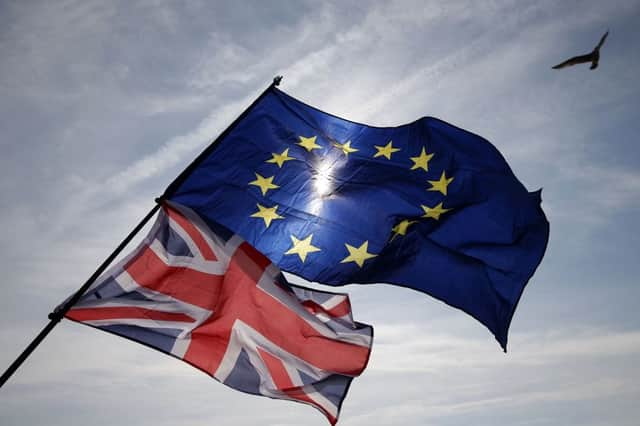The latest on the UK’s EU withdrawal agreement negotiations at a glance


The UK and EU have reached a deal on how the rules of the Brexit withdrawal agreement will be implemented, as the negotiation deadline draws closer.
Prime Minister Boris Johnson’s government announced that it is dropping plans to break international law in relation to the Brexit withdrawal agreement, and is abandoning all the Brexit clauses relating to Northern Ireland in the Internal Market and finance legislative bills.
Advertisement
Hide AdAdvertisement
Hide AdThis U-turn has been made in exchange for promises by the European Union to minimise checks on controls imposed on food and medicines going into Northern Ireland from the UK.
The details of the agreement have yet to be published, but are expected to be confirmed in the coming days.
Did the UK government propose breaking international law?
When the UK leaves the European Union after the transition period ends on 31 December, the only land border between the UK and the EU will be Northern Ireland into Ireland.
Part of the withdrawal agreement is an arrangement called the Northern Ireland protocol. Under the arrangement, goods will not need to be checked along the Irish border, and the region will be allowed to continue enforcing the EU’s customs product standard rules.
Advertisement
Hide AdAdvertisement
Hide AdAs a consequence, this meant that checks would be needed on certain goods entering Northern Ireland from the rest of the UK in order for them to comply with EU requirements.
In September, the UK published its Internal Market Bill - a bill designed to override certain parts of the original Withdrawal Agreement regarding how the UK trades with itself.Clauses in the bill aimed to ensure any goods and services that were sold in one part of the UK, could then be sold in another.
The EU expressed anger towards the bill, saying it would have allowed ministers to ignore some of the aspects of the Northern Ireland protocol requirements.
Because the protocol is an international treaty, and part of the agreement states that anything in it takes legal precedence over UK law, if the Internal Market Bill passed, it would be breaking international law.
What is the latest update?
Advertisement
Hide AdAdvertisement
Hide AdThe UK and EU have now reached an agreement in principle that these clauses will be removed from the bill.
This means that the Internal Market Bill will be dropped, and will no longer affect the Northern Ireland protocol.
A joint statement from cabinet minister Michael Gove and European commission vice-president, Maroš Šefčovič, said they have sealed an agreement “specifically for checks on animals, plants and derived products, export declarations, the supply of medicines, the supply of chilled meats, and other food products to supermarkets.”
The joint statement added, “In view of these mutually agreed solutions, the UK will withdraw clauses 44, 45 and 47 of the UK internal market bill, and not introduce any similar provisions in the taxation bill.”
Are these discussions part of the Brexit trade deal?
Advertisement
Hide AdAdvertisement
Hide AdThe agreement in principle between Michael Gove and Maroš Šefčovič is not part of the ongoing negotiations on a post-Brexit trade deal, which are still deadlocked ahead of the end of the transition period.
Prime Minister Boris Johnson is due to meet European Commission President, Ursula von der Leyen, in Brussels “in the coming days” in a bid to try and break the impasse on the EU-UK trade agreement.